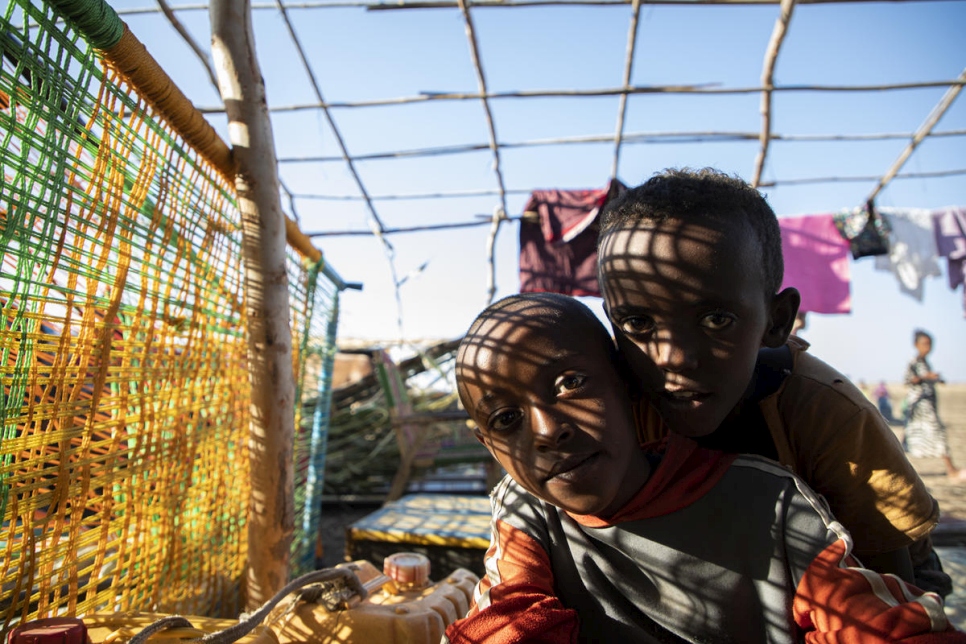
Ethiopian refugees await transfer at a border reception centre in Hamdayet, Sudan
UNITED NATIONS, Jan 8 (NNN-Xinhua) — Displaced persons who are returning to Ethiopia’s conflict-stricken Tigray region find their homes, government buildings and infrastructure looted and damaged or destroyed, UN humanitarians said.
Two joint needs assessment missions were deployed on Dec 20 in Tigray after federal government forces began a military campaign in the northernmost state in early November.
The Southern Tigray mission said that life in Alamata, Mehoni and Mekelle is gradually returning to normalcy with the resumption of some basic services, including electricity and telecommunications, said the UN Office for the Coordination of Humanitarian Affairs (OCHA) in a release.
The majority of the displaced people have returned or are in the process of returning to their homes. However, most of their belongings have been looted or destroyed. Besides the looting of private properties, the mission also observed massive damage and/or vandalization of public health centers and the absence of health workers, said OCHA.
According to both assessment missions, food supplies are very limited, and only locally produced food items are available and at increasing prices. Food, security, shelter, non-food items, health, nutrition, and water, sanitation and hygiene are the priority needs identified.
Infrastructure needs to urgently be restored as many buildings, including schools, hospitals and administration offices, have been looted and damaged. Health facilities outside major cities are non-functional and those in the major cities are partially working, with limited to no stock of supplies and absence of health workers, said OCHA.
Since the conflict erupted, only 77,000 people, mostly in the capital city of Mekelle and its surroundings, and 25,000 refugees in two camps received food support from the United Nations and its partners.
Access to most parts of northwestern, eastern and central Tigray remains constrained due to the ongoing insecurity and bureaucratic hurdles. Two of the four refugee camps in the region are still not accessible, it said.
The interruption of COVID-19 surveillance and control activities in the region, coupled with mass displacements and overcrowded conditions in displacement setting, is feared to have facilitated massive community transmission.
Limited prevention activities have started, including the distribution of 1,200 COVID-19 prevention and hygiene promotion leaflets and personal protective materials, provision of health education and organization of a sanitation campaign in displacement sites in Shire. Additional COVID-19 specific responses are planned by partners, it said.
“We continue to engage with the government for the unrestricted and safe passage of humanitarian personnel and supplies to all parts of Tigray region,” said OCHA, which had been negotiating with the federal government for access to the area from virtually the beginning of the conflict in early November. — NNN-XINHUA






